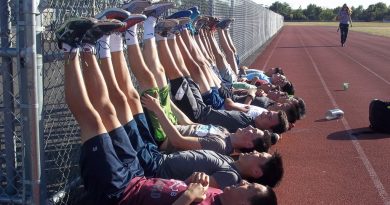Politics and Social Media
 Social media today is very common among the people of the world; everyone has a Facebook accounts. Teens everywhere have Instagrams and Vines filled with selfies and silly videos. YouTube is used by many people to make a living. Google Plus and Myspace are saturated with users who love making friends online (Just kidding, no one uses those).
Social media today is very common among the people of the world; everyone has a Facebook accounts. Teens everywhere have Instagrams and Vines filled with selfies and silly videos. YouTube is used by many people to make a living. Google Plus and Myspace are saturated with users who love making friends online (Just kidding, no one uses those).
All jokes aside, social media today has had a huge influence on our culture, and things like YouTube are slowly overtaking cable TV. Many people, both young and old, have social media accounts these days and use them daily.
The power of social media today is immense. That is why politicians, including President Obama, turned to them to influence the people’s opinions about politics and who to vote for in upcoming elections. In 2008, senator Obama was the first politician to campaign for the presidency via social media. Many political analysts credit his online presence and use of social media for both of his wins (2008 and 2012).
During the 2008 election, the use of social media was only starting to grow; it was completely different than what can be seen today. According to the Pew research center, 74% of adults online use social media as of January 2014. That is a significant increase from the 39% during the year 2009. The percent of adults on social media that were politically active was said to be around 66% in 2012, which was Obama’s second election. From this, it could be seen that many adults on social media are politically active.
If Obama had just made a Facebook page and a YouTube account during the 2008 election and expected them to grow by themselves, they would not have. Why? Because he would not have been engaging with the common people. Instead, Obama decided to be active, giving a sense of participation in his supporters. He was also very authentic, according to Randi Zuckerberg of Facebook. “He has his favorite music up there, his interests, basketball, spending time with kids, Godfather I and II are his favorite movies. His staffers were constantly updating their profiles, telling people they were on the campaign trail or eating pizza or stuck in traffic. It was this kind of voice that made everyone feel like they were in one conversation together,” Zuckerberg stated. It can be seen that Obama’s profile made him look like a normal person with a normal Facebook account, making him relatable and thus earning him the support of 2.5 million supporters on the site.
Obama also utilized social media during the 2012 election. With an already giant following on his Facebook and Twitter accounts, Obama had the ability to reach out to many people in a short amount of time, giving him an advantage over Presidential Candidate Mitt Romney. Romney’s party, not understanding the power of social media as much as Obama did, failed to realize the influence they could have created over people. Once again, Obama made the supporters feel as if they were personally being addressed to, and gave them the sense of participation. In 2012, social media was already a powerhouse in politics and was a must if somebody wanted to win the people’s favor. Obama’s 2012 campaign manager, Jim Messina stated in an interview that “technology was still king.” A technique that the Obama administration developed was called “target-sharing,” where friends could send each other campaign materials over Facebook. “You’re going to be wherever the voter is,” said Messina, meaning the commonly used social Medias such as Facebook, Twitter, YouTube, and others.

For many reasons, social media is a powerhouse in politics; an article by Tom Murse on uspolitics.about.com states 10 reason why, #1 being the direct contact with voters. It also allows for politicians to see the response of the public to a controversy or a new idea, and see the problems and find solutions for them. Another reason was that it engages younger voters, which would add more votes since it is typically older people who decide to vote.
Social media has become a norm for politicians today, and many have their own pages on sites like Facebook and Twitter. It allows for them to reach out to more people who may not be as politically engaged as others, and can strengthen the support from people who are already following them. From Obama’s elections, it can be concluded that Social Media is a powerful tool that if utilized correctly, can unite people and shift the votes in the user’s favor.
Sources:
http://www.dragonflyeffect.com/blog/dragonfly-in-action/case-studies/the-obama-campaign/
http://www.pewinternet.org/fact-sheets/social-networking-fact-sheet/
http://www.pewinternet.org/2009/01/14/adults-and-social-network-websites/
http://www.pewinternet.org/2012/10/19/social-media-and-political-engagement/
http://uspolitics.about.com/od/CampaignsElections/tp/How-Social-Media-Has-Changed-Politics.htm
